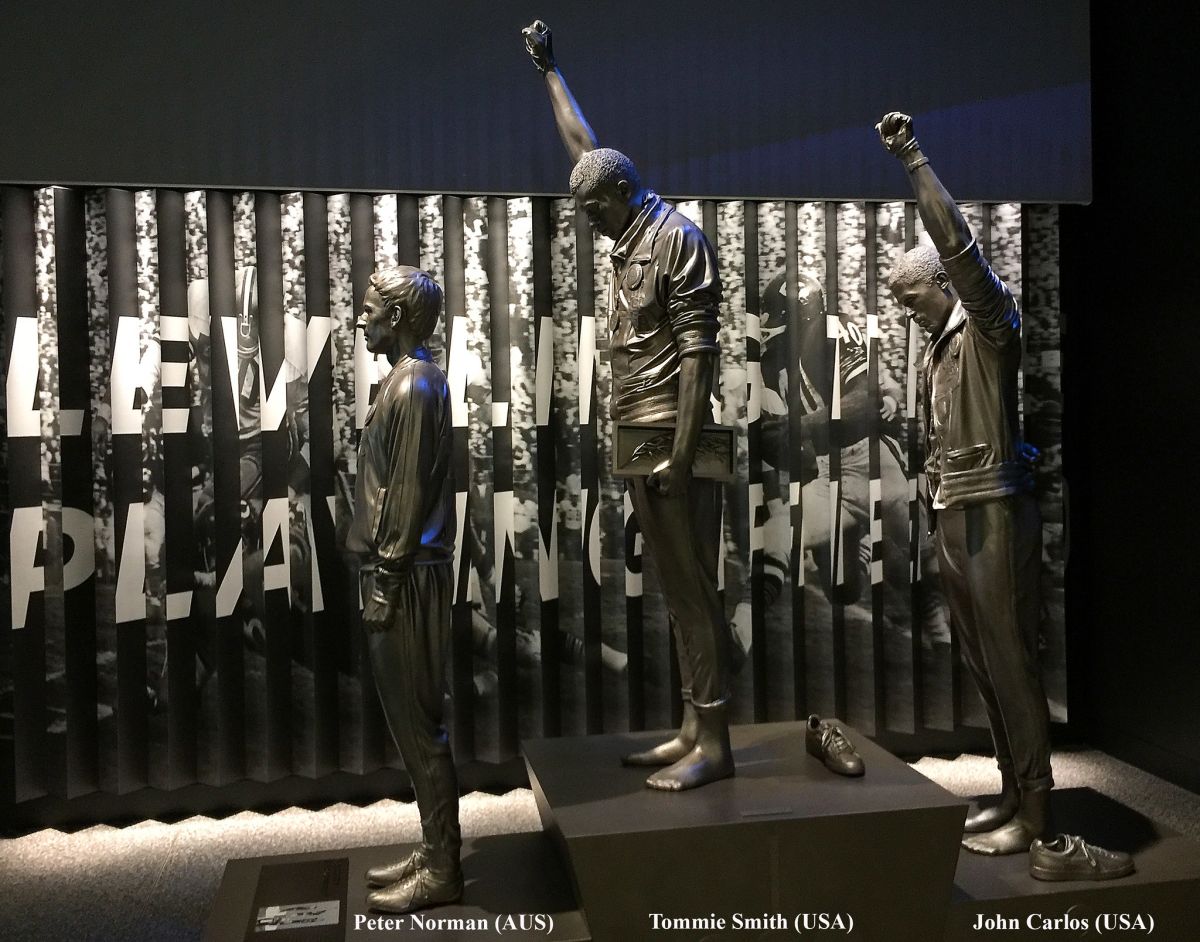Opinion: A ban on activism will not make the Olympics apolitical
By Kate Jackson

The International Olympic Committee (IOC) have reiterated their commitment to keeping politics out of the Games ahead of Tokyo this summer, with an update to their rule banning political activism and demonstrations.
There has been a longstanding rule in the Olympic Charter, Rule 50, which forbids demonstrations and “political, religious or racial propaganda” in any of the Olympic arenas and/or venues. The IOC has now, however, added some precision to this ruling by referencing specific actions that will not be tolerated by the committee, such as political hand gestures, kneeling and the disruption of medal ceremonies.
The specificity of these rules has likely been influenced by a flurry of activism that took place last summer and the turbulent political landscape in America and across Europe.
The 2019 Pan American Games last saw U.S fencer Race Imboden take a knee to raise awareness of racial inequality in America, mirroring the controversial act of athletes like Colin Kaepernick. The Games also saw fellow American and hammer-thrower Gwen Berry raise her fist to protest injustice in America and for “a president who’s making it worse.”
Both athletes were put on a year-long probation following the Games.
IOC President, Thomas Bach, defended the new rule saying the Olympics “are not and must never be a platform to advance political or any other divisive ends.
“Our political neutrality is undermined whenever organisations or individuals attempt to use the Olympic Games as a stage for their own agendas, as legitimate as they may be.”
Bach’s words, however, feel hollow in the face of a long history of high profile and celebrated moments of activism.
The most iconic act came at the 1968 summer games in Mexico City. America’s John Carlos and Tommie Smith made the Black Power sign during the national anthem on the podium after finishing first and third, respectively, in the 200m. Australian Peter Norman finished second in the event and supported Carlos and Smith by wearing an Olympic Project for Human Rights badge.
The three men suffered tremendously following their protest.
The IOC said Smith and Carlos’ actions were “a deliberate and violent breach of the fundamental principles or the Olympic spirit” and consequently meant both were expelled from the Olympic village and suspended from the US team.
All three were heavily criticised by their respective media and were largely sidelined from participating in athletics on the world stage going forward.
Retrospectively, however, the Olympic Channel channel called Smith and Carlos’ act “one of the most iconic moments in the history of modern Olympic Games.” Both men were inducted into the US Olympic and Paralympic Hall of Fame and were later honoured by President Barack Obama.
The legacy of the 1968 Games has largely lived in memory because of the actions of Smith, Carlos and Norman and, in consequence, the sporting world has had no choice but to recognise that the athletes were treated unfairly.
External pressure may have forced the IOC and the sporting world to celebrate the activism of yesteryear but the IOC want that activism to remain firmly in the past, pursuing a future with a more ‘neutral’ outlook.
Even if athletes do abstain from political demonstrations in Tokyo, it seems impossible in an ever-growing divided world to keep global politics out of a global competition.
The boycotting of the Games has been a well-used tactic over the years by countries to make a political point and has been done so on a large scale. The back to back Games in Moscow and Los Angeles, 1980 and 1984, respectively, saw the Olympics become the backdrop for the ongoing Cold War, for example.
The impossibility of keeping the Olympics neutral is compounded by the fact the IOC themselves are implicated in politically dubious decisions over the years.
The IOC chose Berlin as the host for the 1936 Summer Games despite knowing how Adolf Hilter was attempting to exclude non-Aryans from sports organisations. Years later, the committee also allowed an all-white team to compete for an apartheid South Africa.
Even if we are to look past the ironies of the IOC’s decision-making and the naive expectations they have about hosting a neutral event full of countries whose relationships with one another can be described as anything but neutral, the IOC’s close relationship with the United Nations poses some questions about the IOC’s ban on activism.
Article 19 of the UN’s Universal Declaration of Human Rights says: “Everyone has the right to freedom of opinion and expression; this right includes freedom to hold opinions without interference and to seek, receive and impart information and ideas through any media and regardless of frontiers.”
It seems hard for athletes to have ‘freedom of opinion and expression’ if the IOC restricts when they are allowed to act on this freedom.
If the countless instances of politics and sport becoming entwined through activism were not enough, sport can never be separated from politics when every athlete has a different solo-economic background that impacts how they are funded, where they train and what equipment or resources they have access to.
It is not a level playing field for athletes, no matter how much we pretend it to be, and this is only magnified on the Olympic stage. Politics and sport have always walked hand in hand and not only are the IOC attempting to ignore this fact, but they are themselves proving to be hypocritical.







